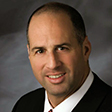6 Steps to Spring Clean Your Financial House
Do you have piles of paperwork cluttering up your kitchen? When’s the last time you checked insurance rates or tracked your spending? Spring is a great time to get organized.


Profit and prosper with the best of Kiplinger's advice on investing, taxes, retirement, personal finance and much more. Delivered daily. Enter your email in the box and click Sign Me Up.
You are now subscribed
Your newsletter sign-up was successful
Want to add more newsletters?

Delivered daily
Kiplinger Today
Profit and prosper with the best of Kiplinger's advice on investing, taxes, retirement, personal finance and much more delivered daily. Smart money moves start here.

Sent five days a week
Kiplinger A Step Ahead
Get practical help to make better financial decisions in your everyday life, from spending to savings on top deals.

Delivered daily
Kiplinger Closing Bell
Get today's biggest financial and investing headlines delivered to your inbox every day the U.S. stock market is open.

Sent twice a week
Kiplinger Adviser Intel
Financial pros across the country share best practices and fresh tactics to preserve and grow your wealth.

Delivered weekly
Kiplinger Tax Tips
Trim your federal and state tax bills with practical tax-planning and tax-cutting strategies.

Sent twice a week
Kiplinger Retirement Tips
Your twice-a-week guide to planning and enjoying a financially secure and richly rewarding retirement

Sent bimonthly.
Kiplinger Adviser Angle
Insights for advisers, wealth managers and other financial professionals.

Sent twice a week
Kiplinger Investing Weekly
Your twice-a-week roundup of promising stocks, funds, companies and industries you should consider, ones you should avoid, and why.

Sent weekly for six weeks
Kiplinger Invest for Retirement
Your step-by-step six-part series on how to invest for retirement, from devising a successful strategy to exactly which investments to choose.
It has been a long winter, and the last thing anyone wants to think about is spring cleaning; however, an annual deep clean of your house is a chance to start fresh, get organized and get back on track.
The same is true for your “financial house.” By taking this time once a year to review your financial well-being and creating clean and organized finances, you may be able to gain confidence while freeing up more time to enjoy the warm spring weather just around the corner.
Use the following S-P-R-I-N-G acronym to get motivated as you review components of your “financial house.”
From just $107.88 $24.99 for Kiplinger Personal Finance
Become a smarter, better informed investor. Subscribe from just $107.88 $24.99, plus get up to 4 Special Issues

Sign up for Kiplinger’s Free Newsletters
Profit and prosper with the best of expert advice on investing, taxes, retirement, personal finance and more - straight to your e-mail.
Profit and prosper with the best of expert advice - straight to your e-mail.
S—Shred old financial documents.
Keep your tax returns, canceled checks, and any records that support tax deductions for auditing purposes. But, it may be time to get rid of those old pay stubs, financial records and documents that you’ve been saving for years. The IRS recommends keeping tax documents anywhere from three to seven years depending on your specific tax situation. Visit www.irs.gov to learn more and determine how long you should retain your tax documents. And remember, it’s important to shred, not throw away old financial documents to help protect your identity.
P—Prioritize your expenses.
Review your savings goals and spending habits. If you have never tracked your spending or set a budget, you may be surprised at how much small purchases add up. Consider using online resources to establish a budget and provide personalized financial reminders. These sites also provide expenditure comparisons, such as the average cost of auto insurance, to help identify additional savings opportunities.
R—Review your estate plan.
Creating an estate plan is a way to efficiently pass on assets to your loved ones and to help avoid the stress and cost of probate after you pass away. If you already have an estate plan, do an annual review to make sure designations are all still current. If a major life event has occurred ,— such as marriage, divorce, birth or death — since the last time you updated your estate documents, take action and meet with a qualified attorney to help you make the necessary revisions.
I—Investigate your insurance coverage.
Now is a great time to review all of your current insurance policies to make sure you’re still paying the best rates and have the appropriate amount of coverage. This review includes home, vehicle, health, long-term care, life insurance and more. If you have had a policy in place for a number of years, there may be enhanced benefits or better rates available in the marketplace than in years past. Consider bundling policies and shopping rates to find the best deal for you.
N—Negotiate your rates.
Every year, make it a priority to look at your outstanding debts and the interest rates you’re paying. Compare rates so that you have a realistic expectation of a possible rate reduction. If your rates are on the high side, contact the loan provider or credit card company and start negotiating a lower rate.
G—Go over your retirement plan.
If you already have a retirement savings account, review the plan and consider contributing the maximum amount possible or, at a minimum, taking advantage of any employer-matching programs available to you. If you do not have a retirement savings account through work or want to contribute even more, consider opening an individual IRA or a Roth IRA as a way to save for retirement.
Remember, your finances should be top-of-mind all year long; but take some extra time this spring to review your progress and get your financial house in order. If you are feeling unsure about your retirement, be sure to consult a qualified financial professional.
Steve Post contributed to this article.
Profit and prosper with the best of Kiplinger's advice on investing, taxes, retirement, personal finance and much more. Delivered daily. Enter your email in the box and click Sign Me Up.

Christopher Scalese, financial adviser, insurance professional and author of the book Retirement is a Marathon, Not a Sprint, is the president of Fortune Financial Group. Scalese has spent much of his career assisting with the financial transition from the working years to the retirement years. His primary goal is to help structure finances for steady income, while limiting risk and avoiding unnecessary taxation. Scalese is a financial representative and a life and health insurance licensed professional.
-
 Nasdaq Slides 1.4% on Big Tech Questions: Stock Market Today
Nasdaq Slides 1.4% on Big Tech Questions: Stock Market TodayPalantir Technologies proves at least one publicly traded company can spend a lot of money on AI and make a lot of money on AI.
-
 Should You Do Your Own Taxes This Year or Hire a Pro?
Should You Do Your Own Taxes This Year or Hire a Pro?Taxes Doing your own taxes isn’t easy, and hiring a tax pro isn’t cheap. Here’s a guide to help you figure out whether to tackle the job on your own or hire a professional.
-
 Trump $10B IRS Lawsuit Hits an Already Chaotic 2026 Tax Season
Trump $10B IRS Lawsuit Hits an Already Chaotic 2026 Tax SeasonTax Law A new Trump lawsuit and warnings from a tax-industry watchdog point to an IRS under strain, just as millions of taxpayers begin filing their 2025 returns.
-
 Should You Do Your Own Taxes This Year or Hire a Pro?
Should You Do Your Own Taxes This Year or Hire a Pro?Taxes Doing your own taxes isn’t easy, and hiring a tax pro isn’t cheap. Here’s a guide to help you figure out whether to tackle the job on your own or hire a professional.
-
 I Met With 100-Plus Advisers to Develop This Road Map for Adopting AI
I Met With 100-Plus Advisers to Develop This Road Map for Adopting AIFor financial advisers eager to embrace AI but unsure where to start, this road map will help you integrate the right tools and safeguards into your work.
-
 The Referral Revolution: How to Grow Your Business With Trust
The Referral Revolution: How to Grow Your Business With TrustYou can attract ideal clients by focusing on value and leveraging your current relationships to create a referral-based practice.
-
 This Is How You Can Land a Job You'll Love
This Is How You Can Land a Job You'll Love"Work How You Are Wired" leads job seekers on a journey of self-discovery that could help them snag the job of their dreams.
-
 65 or Older? Cut Your Tax Bill Before the Clock Runs Out
65 or Older? Cut Your Tax Bill Before the Clock Runs OutThanks to the OBBBA, you may be able to trim your tax bill by as much as $14,000. But you'll need to act soon, as not all of the provisions are permanent.
-
 The Key to a Successful Transition When Selling Your Business: Start the Process Sooner Than You Think You Need To
The Key to a Successful Transition When Selling Your Business: Start the Process Sooner Than You Think You Need ToWay before selling your business, you can align tax strategy, estate planning, family priorities and investment decisions to create flexibility.
-
 I'm a Financial Adviser: This Is the $300,000 Social Security Decision Many People Get Wrong
I'm a Financial Adviser: This Is the $300,000 Social Security Decision Many People Get WrongDeciding when to claim Social Security is a complex, high-stakes decision that shouldn't be based on fear or simple break-even math.
-
 4 Ways Washington Could Put Your Retirement at Risk (and How to Prepare)
4 Ways Washington Could Put Your Retirement at Risk (and How to Prepare)Legislative changes, such as shifting tax brackets or altering retirement account rules, could affect your nest egg, so it'd be prudent to prepare. Here's how.